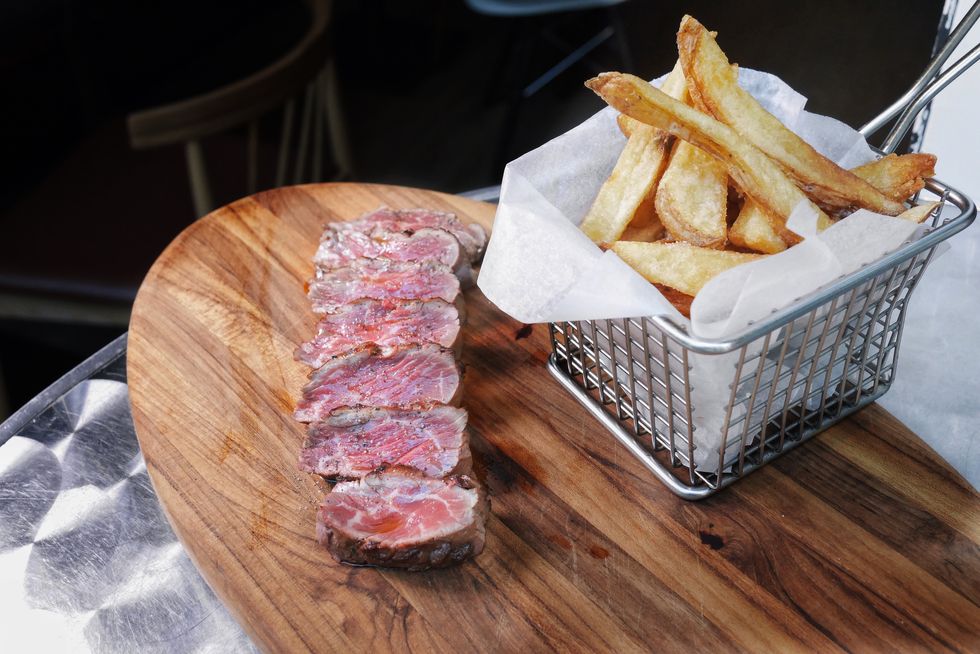Ever since I was young, I hated when my food touched on my plate. My ideal dinner would be served in a cafeteria tray where everything was divided into sections. I liked to keep everything in its place, especially so side dishes wouldn’t mix with the main course. The majority of my family enjoys making fun of me and saying how "it all ends up in the same place," and though that may be true, I definitely do not want to witness my food mixing on my plate. You are probably thinking that I’m crazy, and that wouldn’t be the first time I’ve heard that. But I'm not the only one who feels this way. So why do people hate having their food touch?
Scientific research has come up with an answer: brumotactillophobia. This condition is actually a very mild form of an obsessive-compulsive disorder. Now, what makes food touching so undesirable?
1. Different textures and tastes don't mix.
The most obvious reason is people like to enjoy the flavors and textures of their food separately. Some combinations just don’t taste good, and that’s why the mashed potatoes on my plate need to stay far away from my carrots. Mashed potatoes and carrots may taste good on their own, but carrots and potatoes together, not so much.
Oftentimes, this behavior can be passed off as a symptom of another well-known condition: being a picky eater. Picky eaters simply dislike most foods in general, whether they are mixed or not. People who don’t like when their food touches typically like many foods when they aren’t mixed together.
SEE ALSO: 6 "Chinese" Foods You Won't Actually Find In China
2. Aesthetic appeal
Separated food simply looks nicer and more organized. This makes it look a lot more appealing. A big pile of food, like the ones you put together at an all-you-can-eat buffet or a family Thanksgiving dinner, just looks messy and haphazardly strewn together. Things that look visually appealing are more enticing to eat rather than a plate lacking any aesthetic appeal.
3. It's a control thing.
People typically have small ways of instilling control in their otherwise out-of-control lives. And keeping their foods separated is one of them. This behavior is commonly seen in children who lack a large amount of control in their lives. With your parents making the majority of your decisions for you, it’s not hard to see why kids desire control.
Brumotactillophobia may have connections with obsessive-compulsive disorder, but many cases are very mild and unalarming. Many people suffer from this phobia, but as with most things, you grow out of it. If you don’t, check out these food separators from Amazon.






















